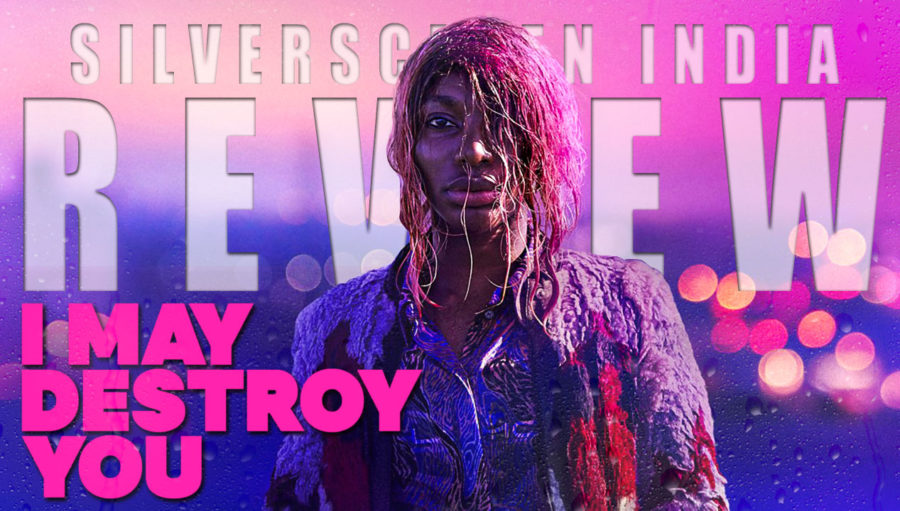A subject as delicate as consent needs to be dealt with empathy and nuance and Michaela Coel’s new series, I May Destroy You does exactly that. It takes the theme of sexual assault and consent head-on, and dissects their many imperceptible layers with clarity and care. The inspiration for I May Destroy You came to Coel in 2016 when she was working on the script for the second series of her debut sitcom, Chewing Gum. The assault occurs with her in real life exactly how we see it on screen.
The show begins with Arabella Essiedu (played by Coel herself), a writer by profession, currently working on the draft of her second book, while struggling to piece together the occurrences of a night spent in the company of her friends and some strangers in a bar. There’s something off about the night, because when she wakes up, she has a cut on her forehead. She recalls flashbacks of a man’s face, hovering atop her, but can’t seem to recognize who he is or comprehend what’s happening. By the end of Episode 1, all guesses point in one direction – Arabella’s drink was spiked, and she was raped by an unknown assailant.
In the episodes that follow, we get a glimpse of her recent past—the two months she spent at a writers’ retreat in Italy—during which she has a romantic fling with Biagio, a drug dealer. At first glance, Biagio – who does not do drugs himself seems picture-perfect but vague. Later, we learn why. When Arabella is back in London and Biagio learns about her assault, he lectures her about drinking with strangers and not being careful enough. Months later, after the police, having failed to find Arabella’s assailant, shutdown the investigation, she flies on a whim to Italy, the only place where she felt safe and happy. She shows up at Biagio’s apartment unannounced, giving him the impression of being a needy stalker, when in reality she needs some care, comfort and consolation. So Biagio, to get rid of Arabella—a girl who smokes, does drugs, gets drunk with strangers, and gets raped because she was asking for it—threatens her with a gun and demands that she leave.
*****
Arabella’s journey of healing and self-care is worth a mention here. It’s impressive to see her make an effort – meeting support groups, pushing herself at fitness classes until she cannot take it anymore, and exploring art therapy. Which brings us to Arabella’s two best friends – Terry and Kwame – who are always around her to help her cope, and who also experience their own share of sexual assault and understanding consent, three incredible subplots Coel seamlessly stitches into the narrative.
To begin with, there’s Arabella’s ‘stealthing’ experience with Zain, a writing partner assigned to Arabella by her literary agent, with whom she forms a sexual relationship. It isn’t until Arabella learns through a podcast that non-consensual or covert condom removal during intercourse, thereby exposing the partner to a risk of unwanted pregnancy or STD, amounts to rape. Funnily, Zain also tries to gaslight her by saying, “Oh, I thought you knew”, which is why she doesn’t mind (the first time it happens) and even lets him buy the morning-after pill. When Arabella figures out that she was a victim of stealthing, she exposes him at a literary event and ends his Cambridge-graduate writing career.
Next is Terry, Arabella’s friend, who has a consensual threesome with two guys she meets at a bar. Terry’s choice to participate in threesome with two strangers symbolized thrill, excitement and sexual liberation. It meant that she would be in control, but she feels manipulated when she finds out the two men know each other. One may not term this as assault because there is a certain level of consent involved, but it is consent by deception, and also takes away the person’s choice.
And then there is Kwame, a fitness instructor who spends most of his time hooking up with men he meets on Grindr. Unfortunately, one of those consensual hook ups suddenly turns forced, and Kwame is left confused, hurt and exploited. We see how hard it is for a gay man to confide in his female friends, let alone muster the courage go and report the incident to the police. Over twelve episodes, Coel presents events and emotions we seldom see on screen.
Recommended
The final episode is a lot to process because Coel generously writes three different versions of what would happen when Arabella confronts her rapist. Her narrative is sardonic as it is unsettling. Does Arabella physically beat her assaulter on an open street or does she bring him back to her apartment and hide him under her bed? Does she begin to empathize with him and counsel him as he gets arrested, or does she willingly have sex with him again? Or does she simply stay home with her roommate and read a book?
It’s certainly a tricky one, the finale. It’s riveting too. There is nothing real, yet it’s there, looking right back at you. Coel’s storytelling shocks you; it is fresh and brilliantly imagined. It embraces you in real time; it sets you free. I May Destroy You is not a show just about sexual assault, or consent, or social media. It’s about friendship, trust, love, and traversing the blurry lines between right and wrong, and then coming back to ground zero to realize there may not be a single version of right or wrong.
I May Destroy You is currently streaming on Disney+Hotstar, India and is written, produced and co-directed by Micheala Coel.



